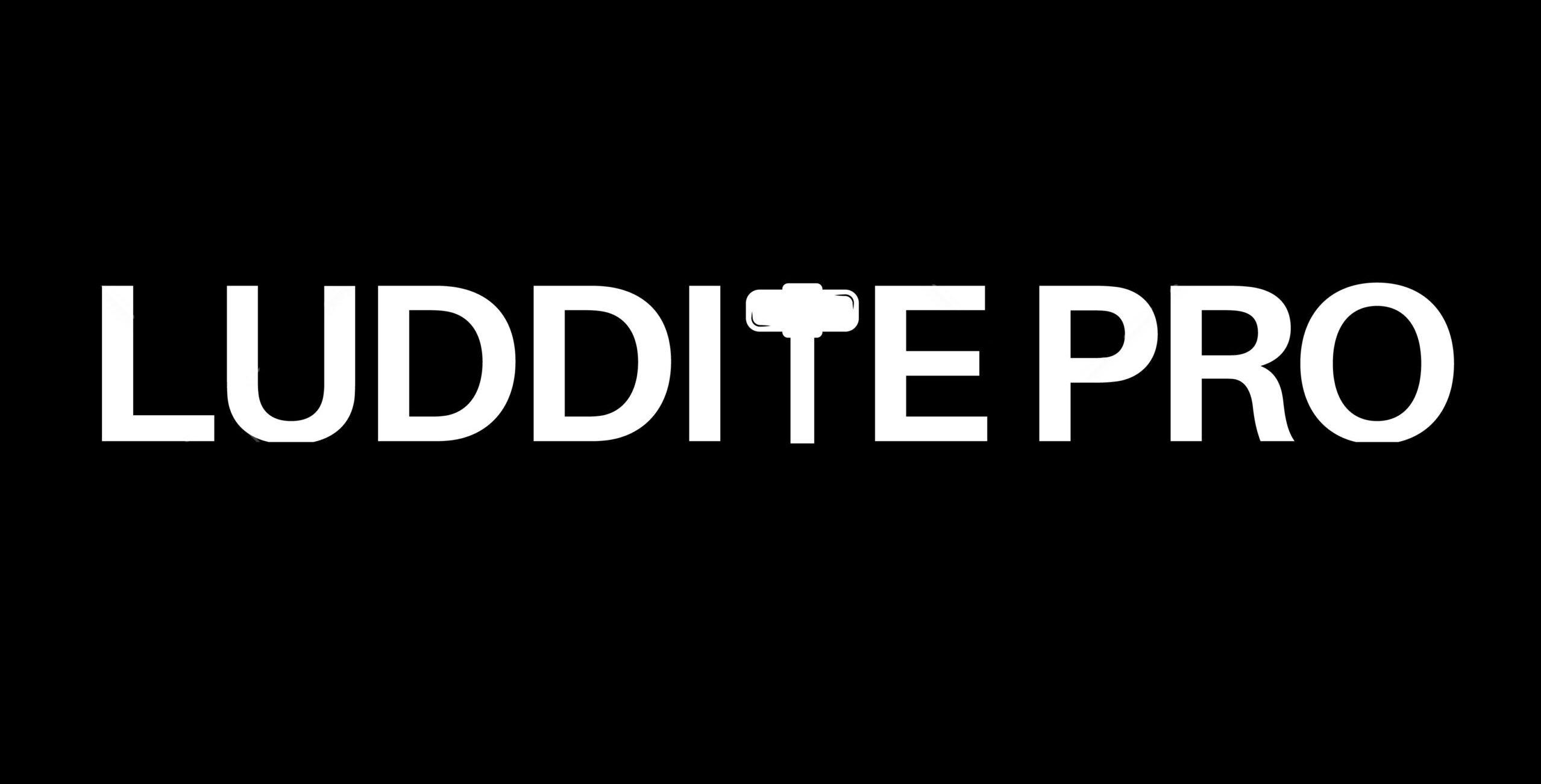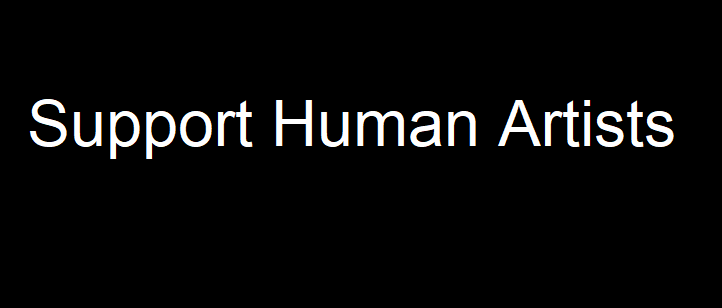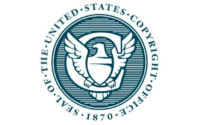Open Letter: Creatives Refusing Generative AI Demand Seat at Table from US Congress
If you want your name added to the list, please fill out this form.
As part of Luddite Pro’s ongoing dialogue about the ethical implications of generative AI, we have consulted with a diverse group of stakeholders. Among these are artists, authors, bloggers, actors, technologists, musicians, and creative professionals with a more skeptical view of the technology’s place in the creative ecosystem.
While we understand that AI has its proponents within the community, it is essential to give a platform to the many who find its application problematic, even threatening, to the fabric of authentic creative expression.
The polarization of this debate created an environment where people who criticize or question AI’s role are marginalized or dismissed as technophobic. They then find themselves embroiled in vitriol online in social forums for attempting to voice their concerns. Often, speaking out against AI causes artists to have models trained on them, targeting and amplifying the damage done.
This open letter aims to amplify the concerns of artists, authors, musicians, developers, academics, and other creative professionals who are not entirely convinced that AI can or should be a tool in the creative process.
We, the undersigned, are deeply concerned for the following reasons:
1. Originality and Attribution: Generative AI depends on existing works to create ‘new’ pieces. The questions of ownership and originality are blurred by AI marketing buzz, posing challenges for artists who wish to protect their intellectual property.
2. Lack of Consent: AI systems are trained on datasets that have been appropriated without the explicit consent of the original creators. This poses a significant ethical dilemma in an online world already fraught with issues surrounding plagiarism and appropriation. They should be opt-in only.
3. Economic Impact: The proliferation of AI-generated images, writing, code, voices, music, and more is devaluing human-made work and affecting people’s livelihoods. Creatives are now competing against a flood of their own work for discoverability and revenue in every conceivable marketplace.
4. Transparency: AI companies are not being transparent about their models. It’s not an open-source vs closed-source debate, as companies like Stability AI prove that making the software available doesn’t open source the weights needed to understand it.
When a machine can create work in seconds, what becomes of the human who invests time and skill to becoming an expert and will still be needed to command these “tools” should they become ethical?
We hope that this letter serves as a starting point for a more nuanced conversation that respects the concerns and perspectives of all artists, whether they are embracing AI or wary of its implications. If you agree with our stance, we invite you to sign this form and engage in follow-up actions with our group.
Updated: 14 September 2023
To Sen. Schumer and Members of the US Congress:
Art, music, and stories are fundamental to the human experience and go back as far as civilization itself. They’re how we communicate important information, share entertaining experiences, and advance as a society. Unfortunately, these important resources are being appropriated by exploitative tech companies leveraging artificial intelligence.
We write this letter today as professionals: artists, authors, actors, writers, bloggers, voice-over actors, designers, coders, developers, academics, researchers, journalists, attorneys, entrepreneurs, and more.
Our creative processes utilizing technology stretch back for decades. Many of us are people who have dedicated our lives to studying technologies and tools to make use of every ethical medium to enhance our capabilities.
For others, technology makes art, writing, news, entertainment, and education more accessible by allowing them to pioneer new ways of thinking and becoming thought leaders. Just like previous innovations, professionals across a broad spectrum of disciplines and industries converged on generative AI tools like Midjourney and ChatGPT with curiosity and experience.
Not all of us professionals have the financial means to utilize generative AI tools. Midjourney can cost upwards of $100 per month or more (more than the entire Adobe Creative Cloud), and ChatGPT costs more than a monthly subscription to MS Word or free access to solutions like Google Docs. Without the financial means and right societal connections, using generative AI is inaccessible to the average person. That’s not even getting into the costs associated with training a model–an Nvidia A100 GPU costs over $25,000, well more than the average person spends on their entire car, let alone computer.
Unfortunately, Ai marketing buzz from the CEOs and influencers parroting them have misrepresented the concerns of professionals regarding generative AI. They call us luddites as an insult and incorrectly label us as technophobic, despite each of us clearly demonstrating more comprehensive applied knowledge of these technologies than either their creators or users.
The exploitative nature of the data scraping used to train the models without consent, combined with the lack of attribution nor compensation creates a clear and present danger to creative professionals. Any work we publish online, whether it is copyrighted or not, is treated as though it is free to use by unscrupulous AI dataset creators. Even if we are lucky enough to block the robots.txt and Glaze our work in time, AI users can use tools like Image-to-Image to plagiarize us. It is a systemic problem that must be addressed.
Sen. Schumer and Members of Congress, we appreciate the ongoing hearings, ‘Insight Forums,’ and other initiatives focused on regulating generative AI systems and that your goal is to be inclusive, pulling from a range of ‘scientists, advocates, and community leaders’ who are actively engaged with the field. Ultimately, that must mean including professionals like us. Contrary to popular belief, we use AI tools daily and will provide an important perspective to this increasingly pressing discussion.
At this pivotal moment, it’s crucial to direct the development of generative AI in a responsible manner. The rising concerns about how this technology impacts the labor and livelihoods of creative professionals can’t be swept under the rug. It’s well-known that powerful organizations and corporations often wield new technologies to exploit labor, endangering our ability to sustain ourselves through our work.
For many of us in the creative fields, the use of generative AI is neither empowering nor enriching. We view these tools as a means of diluting originality rather than enabling transformative creations. We’re fully aware of the troubling aspects and repercussions of these technologies, as well as the complexities involved in regulating them. Precisely because we’re on the front lines of artistic creation, our cautionary perspective is urgent and should not be overlooked during this significant period.
Sincerely,
The Undersigned
1. Brian Penny
2. Remmelt Ellen – Let’s stop this rampant violation of copyright. Team Human!
3. Chuckk Hubbard
4. Nicole Salamone
5. Danny Hudson – Our Arts & Cultures are vital to our human history and growth, it should *never* be auctioned off to AI companies for more money, ai can be tools for humans but never an anthropomorphized lifeform that takes away what we hold dear. when we as people are no longer allowed to even DREAM for ourselves will be the true dystopia. stop theft, stop devaluing human creativity. let’s be better.
6. Pablo L Sanchez
7. David Isaev
8. Antonio Aponte – I believe that stricter copyright laws and harsher penalties for companies using AI to replace human talent are a vital step in protecting us our works from generative AI, and will be participating in the Copyright Office’s forum to advocate for stronger copyright protections to exclude or minimize AI generated content and prevent unethical model training based on those copyrights.
9. Tobias Rova Karlsson
10. SJ Botham



